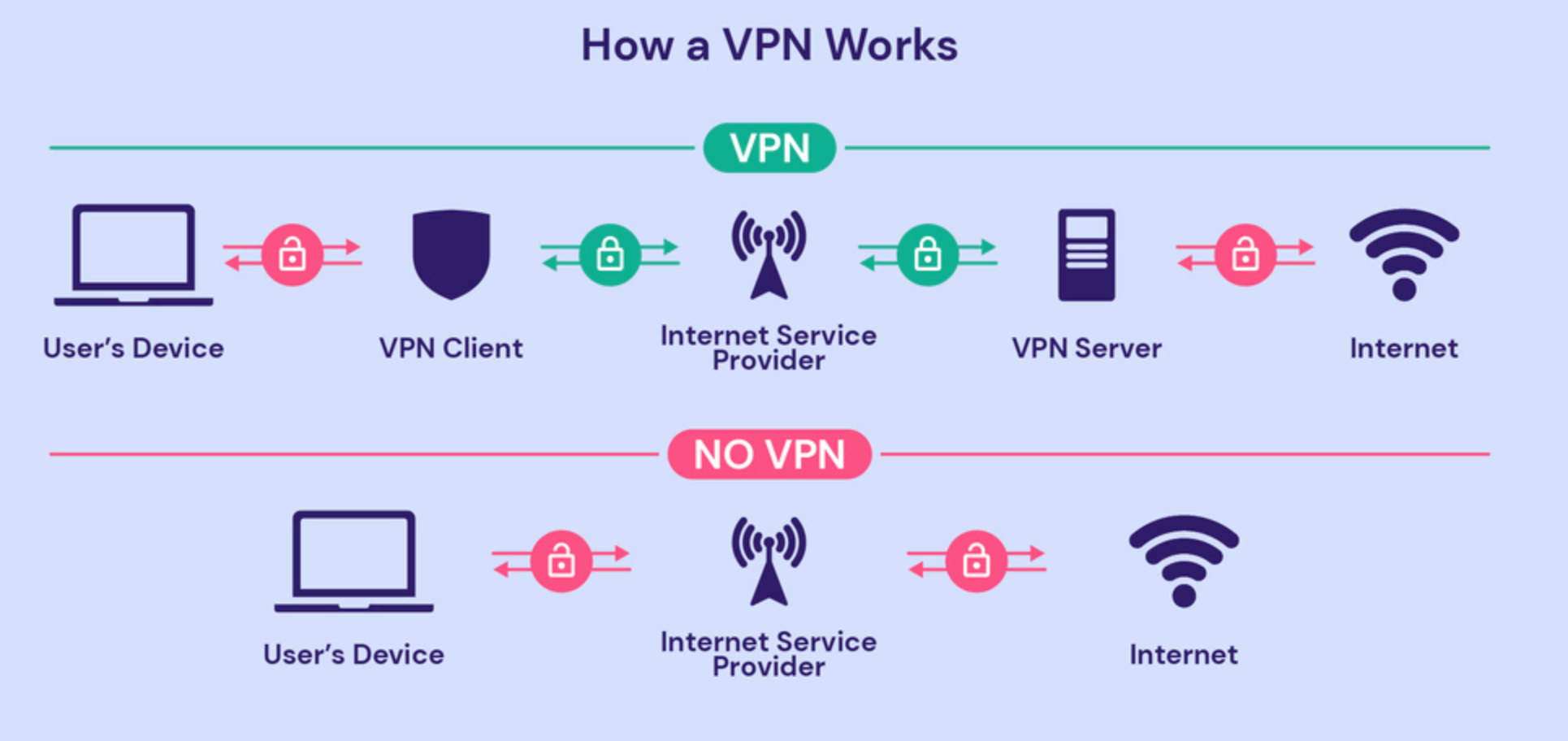The Tanzania Communications Regulatory Authority (TCRA) has tightened its grip on using Virtual Private Networks (VPNs) in a bold new directive aimed at individuals and companies leveraging VPNs for various operations. In a public notice issued on Friday, October 13, 2023, the TCRA VPN Directive mandated all VPN users declare their usage comprehensively, obligating them to submit all pertinent information, including Internet Protocol (IP) addresses. This action comes on the heels of a marked increase in VPN utilisation to access content deemed prohibited under Tanzanian regulations. I wonder if Mange Kimambi has something to do with this;
Referencing Regulations 16(2) and 19(b) of the Electronic and Postal Communications (Online Content) Regulations, 2020, the TCRA has reaffirmed its staunch stance against the rendering, possession, or distribution of technologies facilitating access to barred content.
Just so you know, individuals and corporations reliant on VPNs are hereby required to convey their usage specifics to the regulatory body following the submission deadline of October 30, 2023. The TCRA has facilitated this submission process via an online form, readily accessible at https://www.tcra.go.tz/vpn-details-form.
Anyway, back to the main topic – Non-compliance with these stringent directives carries substantial penalties, including fines not falling below Sh5 million and imprisonment terms extending to a minimum of 12 months. The regulatory authority retains the prerogative to enact decisive actions against unauthorised VPN usage, encompassing the disablement of access to such VPNs.
This directive underscores the TCRA’s unwavering commitment to regulating electronic and postal communication services within Tanzania, ensuring the steadfast enforcement of compliance with established online content regulations.
In the wake of this announcement, individuals and businesses leveraging VPNs for operational necessities are urged to act promptly, ensuring the meticulous declaration of their VPN usage and relevant details before the deadline. Now, for the older adults out there who do not understand what VPN is, here’s an ABC
VPN: The Internet’s Secret Keeper – What Is It and How Does It Work?
Let me explain it in a simple way. VPN stands for Virtual Private Network. Think of it as having a secret handshake or a magic cloak that keeps you hidden when you use the internet.
How Does a VPN Work?
Imagine you’re sending letters to a friend. If you send them without an envelope, anyone can see what’s written inside. A VPN acts like a magical envelope that keeps your letters (your information) hidden from prying eyes like hackers or people who want to steal information.
When you use a VPN, it creates a particular tunnel on the internet. Everything you do online, like sending emails, shopping, or chatting with friends, goes through this safe tunnel. It’s like having a private road on the internet where you can drive safely without worries.
Why Do People Use VPNs?
- Safety: When you use public Wi-Fi, like at a café or an airport, a VPN helps protect your information from hackers. It’s like having a strong lock on your door.
- Privacy: Sometimes, we don’t want companies to watch what we do online. A VPN hides your actions, so it’s like browsing through a secret path where no one can follow you.
- Access: There are times when some internet services or websites are blocked in certain places. A VPN can help you get access by making it seem like you are using the internet from a different place.
So, a VPN is like a superhero of the internet. It protects you, keeps your online life private, and helps you access the whole internet safely and freely. Using a VPN is like having a trusty friend who holds your secrets safe while you explore the online world.
Our take on this TCRA VPN Directive – It is a BAD idea.
The TCRA VPN directive mandating the disclosure of VPN usage raises several concerns. Firstly, it is security. July 31, 2023, Daily News reported that “TanzaniaCommunications Regulatory Authority (TCRA) is in the initial preparations of establishing unlicensed frequency bands, which will allow service providers to offer free Wireless Fidelity (WiFi-Hotspots) in the public spaces. Speaking in Dodoma recently, the regulator’s Director General, Dr Jabir Bakari, said TCRA is taking the initiative as the government targets 80 per cent of Tanzanians to have high-speed internet services by 2025″.
Here’s the confusion. In one hand, TCRA promotes the Public WiFi, on the other hand it restricts the best security measure for citizens who will be using the said Public WiFi. Is the authority secretly working against ‘what’s best for the people?’ Do you want people to access public Wi-Fi without a VPN? This goes against basic Cybersecurity Protocols.
Moreover, collecting detailed user information, including IP addresses, might compromise user privacy, making individuals feel unsafe or exposed online. This could lead to a sense of discomfort among users who value their online anonymity and privacy.
The directive could pose significant challenges on the business and technological innovation front. Businesses often leverage VPNs to secure their operations, particularly for remote work. Restrictive policies might hinder such practices, impacting business continuity and potentially affecting economic activities. Additionally, the directive might stifle technological innovation, discouraging tech entrepreneurs and companies from fostering a vibrant tech ecosystem within the country.
Implementing and ensuring compliance with the directive might prove to be a challenging endeavour. The enforcement of VPN declarations is complex due to VPNs’ intrinsic anonymity. Moreover, the directive’s execution could be resource-intensive, necessitating significant technological investments for monitoring and enforcement. In June 2023, TCRA reported that Internet users in Tanzania hit 34,047,407. I imagine if all of them, or 50% or even 10%, submit their VPN. I would love to see how the authority handles the submitted forms.
On the user experience front, limiting VPN usage could curtail access to a vast array of global content and information. Such restrictions could hinder educational, research, and personal development opportunities and restrict users’ access to diverse viewpoints and information sources (especially the Mange Kimambi App for juice gossip). This could lead to a limited internet experience, restricting the breadth of user content.
Legal and ethical considerations also come into play. The foundation upon which the substantial penalties, including fines and imprisonment, are based could be scrutinised. Furthermore, ethical debates might emerge regarding the appropriateness of exerting such extensive control over individuals’ internet usage and access to information.
The directive could also influence Tanzania’s global perception, potentially affecting its image concerning internet freedom and openness to business and technological advancements. Such perceptions could have broader implications, influencing international business and partnerships.
Lastly, the security implications of the TCRA VPN directive are noteworthy. While aimed at controlling content access, discouraging VPN usage might inadvertently impact cybersecurity. VPNs are pivotal in safeguarding users against various cyber threats due to their encryption capabilities, and their restricted use could expose users to increased cyber vulnerabilities. Read our other article, “The Future of the Internet is Dark, It Comes With Total Privacy Loss.”
Rights Groups Position
The Tanzania Digital Rights Coalition, a robust alliance of various organizations, has expressed strong opposition to the TCRA’s recent decision to restrict VPN usage. The coalition, standing steadfast in its commitment to safeguarding digital rights, believes in the fundamental freedoms of accessing information, maintaining privacy, and expressing oneself on the internet, essential pillars for fostering a democratic and inclusive society.
Organizations that form the coalition include: JamiiForums, The Launchpad Tanzania, Legal and Human Rights Center (LHRC), Twaweza, Tanzania Human Rights Defenders (THRDC), Union of Tanzania Press Clubs (UTPC), Pollicy, Her Initiative, Haki Elimu, Sahara Ventures, Nukta Africa, WiLDAF, d-Lab, Digital Maarifa, Haki Maendeleo, Tangible Initiative, C-Sema, Tanzania Bloggers Association, CWHRD, Organization for Digital Africa, Internet Society, TAI Tanzania, and Digital Guardians Alliance (DiGA). These organizations collectively condemn TCRA’s directive, advocating for a more open and free internet in Tanzania. You can read their Official Statement against restriction of VPN use in Tanzania here.


